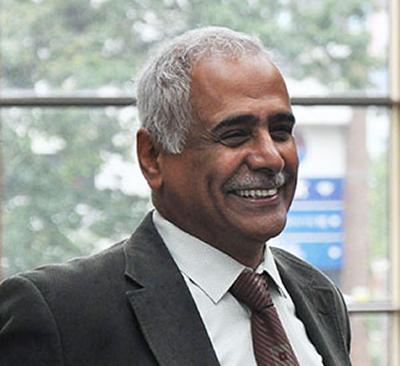
 The University of Southampton is to lead a new research project to help achieve low carbon cities in the UK and China.
The University of Southampton is to lead a new research project to help achieve low carbon cities in the UK and China.
The project is one of four that will receive over £3m in funding from the UK’s Engineering and Physical Sciences Research Council (EPSRC), with matched equivalent resources from the National Natural Science Foundation of China (NSFC).
The announcement comes in parallel with the State visit by Chinese President Xi Jinping to the UK this week.
The University’s Sustainable Energy Research Group (SERG) will receive £800,000 to collaborate with Xi’an University of Architecture and Technology to investigate how to reduce the carbon emissions of existing technologies and conduct research into alternative energy sources and the reduction of energy demand. It will use Portsmouth and Xian as the case study cities for the City-Wide Analysis to Propel Cities towards Resource Efficiency and Better Wellbeing project.
Since 2005, SERG has undertaken research on low carbon cities in China with the aim of capturing knowledge from the fast development within Chinese cities and applying the outcomes to UK cities.
Professor AbuBakr Bahaj, Head of SERG, says: “This award builds on our track record of more than 15 years studying cities and energy. The work is multidisciplinary involving other researchers from the University and elsewhere. The focus is to explore renewables, energy efficiency and low carbon technology approaches to ‘re-engineering the city’ to more sustainable pathways and the impacts these have on society.
“Many cities in the world are putting in place their own robust carbon reduction strategies in response to changing climate and energy efficiency legislation. As the powerhouses of economic growth, cities use vast amounts of energy and consume resources that stretch across international boundaries. By using our research strengths, and in relation to this new funding, we hope this will help the UK and China to successfully move towards future low carbon cities.”
Work by SERG spans the refurbishment of buildings, microgeneration technologies, occupant behaviour and wellbeing as well as city-wide analysis to establish energy consumption reductions. This work has included:
•In 1997, the Group implemented the second solar photovoltaic façade in the UK and invented the solar trailer.•Today, with over £18m funding portfolio, SERG work encompasses Cities and Infrastructure, Data and Modelling,
Energy and Behaviour, Energy and Buildings, Energy for Development, Environmental Impacts, Microgeneration Technologies and Renewable Energy (Solar Photovoltaics and Marine Energy).
Under the £6.2million programme grant (Liveable Cities) SERG is providing the blue print for citywide refurbishment of buildings and energy generation in Southampton, Portsmouth, Lancaster and Birmingham.
SERG is also involved in a number of projects across the Solent region. Professor Bahaj said: “Through £10.2m support from Ofgem’s Low Carbon Networks Fund, we are investigating the impact of energy efficiency measures in over 4,600 homes on the network grid investment.“We are currently in the process of publishing our analysis of energy consumption and generation and how these could be optimised to provide economic upturn in the region, create more jobs and transitioning the region to low carbon.”
For more information please see: www.southampton.ac.uk.